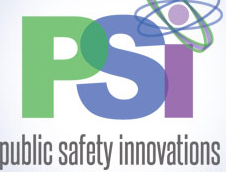 |
 |
Implementing a Drug and Alcohol Testing Program — Things to Consider:
Employee and applicant drug testing is a tool employers have to ensure their workforce is drug-free. Studies have shown employers lose between $60 and $100 billion annually because of employee drug abuse. The costs result from lost productivity, increased absenteeism, drug-related accidents, medical claims, and theft. Proponents claim that testing helps control insurance costs, reduces workplace injuries, reduces workers’ compensation premiums, and helps avoid negligent hiring and retention claims.
Employers must consider a variety of factors when implementing a drug and alcohol testing program and determine the following:
- Why is the program being implemented?
- Who will be tested? Applicants only? All employees, or merely those in safety- or security-sensitive positions?
- What types of tests will be given?
- What substances will be tested for?
- Who will administer the tests?
- What are the consequences of a positive test?
Probably the most important of these considerations is the type of drug test that will be used, including:
- Pre-employment testing — Given before employment to determine whether the applicant is using illegal drugs. This testing is becoming more common as a front-line deterrent in preventing drug-abusers from entering an employer’s workforce.
- Reasonable suspicion — Given when an employer has a reasonable basis to suspect an employee is using drugs or is at work under the influence.
- Post-accident — Given after an employee is involved in an accident at work.
- Random — Given on an unannounced basis and employees are selected for testing on a random basis.
- Follow-up — Given on a scheduled or random basis when an employee returns to work after completing rehabilitation or counseling for substance abuse.
- Periodic — Given at specified times, such as for employees who have been returned to the workforce after testing positive or generally for employees in safety, security or direct care provider positions.
A good testing policy will clearly describe the prohibited conduct and the consequences for such conduct. It must have a clear statement as to the consequences of a positive result or for the refusal by an employee to take a required test. If an Employee Assistance Plan (EAP) is part of the policy, one element should include referral to the EAP. The policy should be communicated to employees and supervisors. Employees should be required to separately sign the policy even if they are already required to sign a general acknowledgment of receipt of a policy handbook. Supervisors should be instructed regarding testing procedures and privacy issues. PSI assists clients with implementing this policy and provides their clients with needed forms at no charge.
Contact us today in reference to implementing your drug testing program. 318.461.2572.
Robert Manson
Manson Builders













